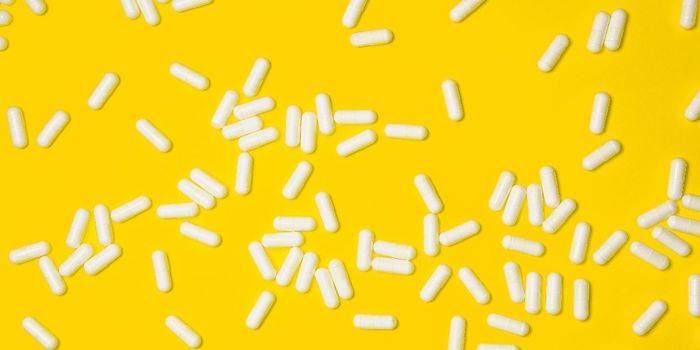Newborn brain cells, even at old age
Neurogenesis is the growth or development of new neural cells. One of the most heated debates in neuroscience is whether or not neurogenesis ceases once the brain stops developing in adolescence. Can adult brains make new neurons? Recently, a new study published in the journal Nature Neuroscience found that people can make new brain cells past adolescence well into old age.
Young neurons labeled red from a 68-year-old. Image credit: Llorens Lab
Last year, a study in Nature reported that this process dwindles by adolescence. This finding was surprising to the neuroscience community, especially those who dedicated their work to studying neurogenesis in the rodent hippocampus, a brain region involved in learning and memory. Indeed, most research on neurogenesis to date has been performed in rodents.
However, there were methodological issues with the current study. For example, in the Nature study, researchers examined human brain tissue that had been soaked in the fixative paraformaldehyde for months to years. Newborn neurons are typically identified by using fluorescent, or light emitting, markers that bind to a protein called doublecortin (DCX). Tissue fixation for more than a mere 48 hours can make it difficult for the markers to bind, and nearly impossible after 6 months of fixation.
When researchers used a shorter fixation time (24 hours) to preserve brain tissue from 13 deceased adults, ages 43 to 87, the dentate gyrus, part of the hippocampus, lit up with thousands of newborn cells. Interestingly, tissue from adults with Alzheimer's had 30% fewer newborn neurons than healthy donors of the same age, meaning that neurogenesis could help treat those with Alzheimer's and other related brain diseases.
Some scientists remain skeptical. They claim that DCX stain is an inadequate measure of young cells because the DCX protein is also present in mature cells. Llorens-Marti, lead author of the paper, however, says that her team used numerous proteins to ensure that the DCX cells were in fact young.
Yet, others are hopeful. Heather Cameron, a neuroscientist at the National Institute of Mental Health in Bethesda, Maryland, remains persuaded by the new work. Based on the "beauty of the data" in the new study, "I think we can all move forward pretty confidently in the knowledge that what we see in animals will be applicable in humans, she says. "Will this settle the debate? I'm not sure. Should it? Yes."
Learn more about neurogenesis from this TED talk by neuroscientist Sandrine Thuret:
Source: Science









